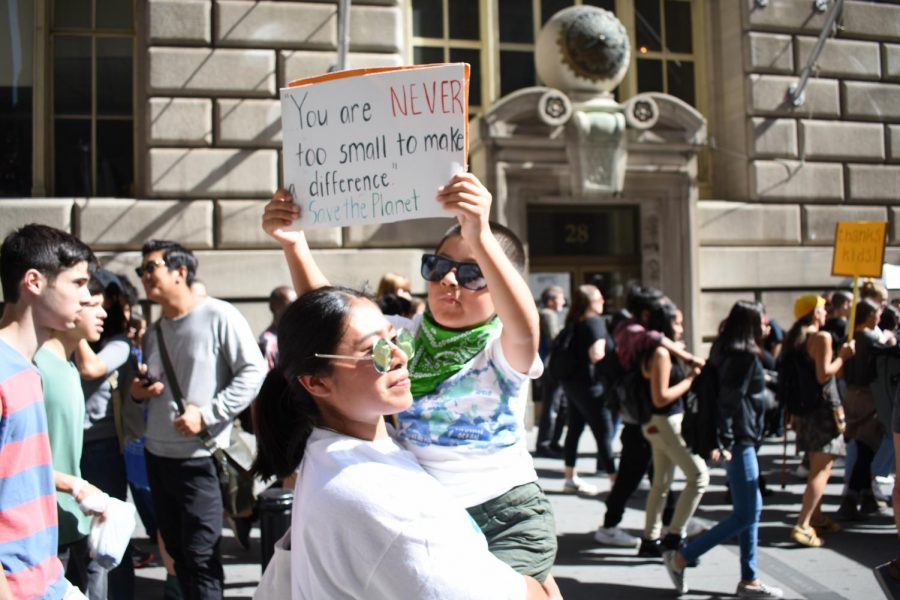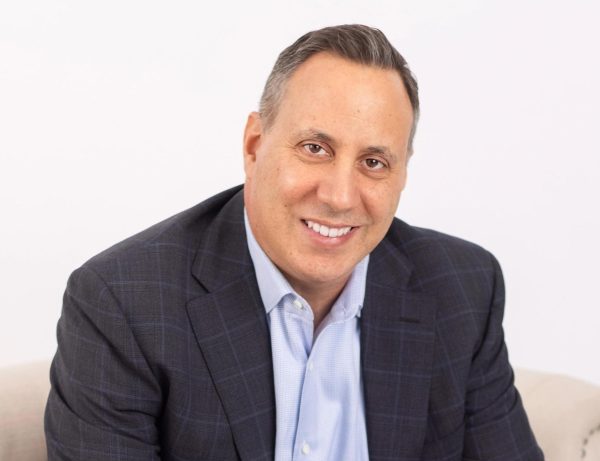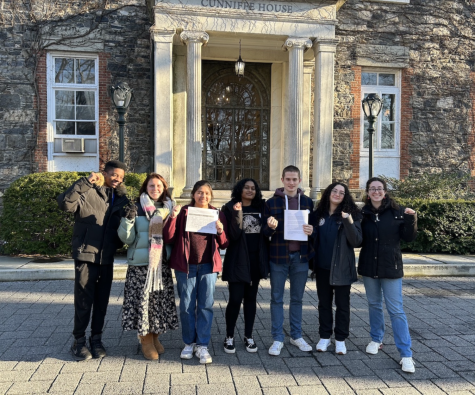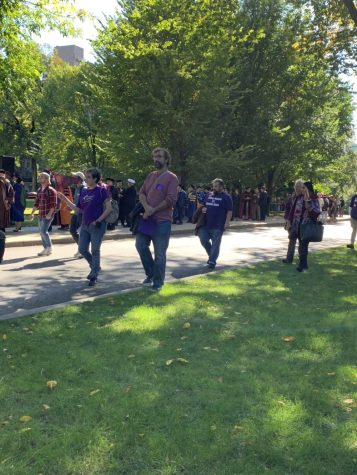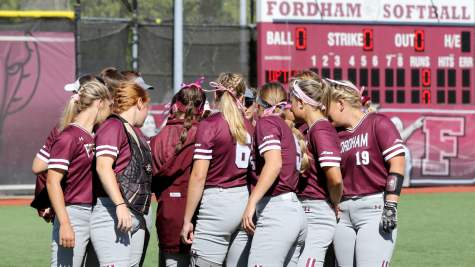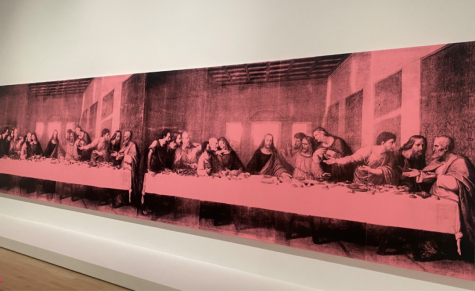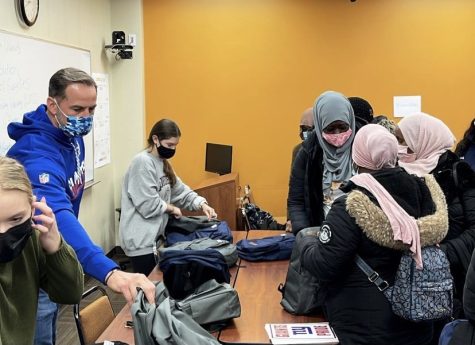Fordham Students March in Foley Square for Climate Justice
Last Friday, Sept. 20, many Fordham students ventured out of the classroom and into the streets to participate in New York City’s Climate Strike. The strike, which began in Foley Square and ended in Battery Park, was inspired largely by Greta Thunberg, the 16-year-old environmental activist from Sweden, who traveled to New York on a zero-emission sail boat. Over 250,000 protestors attended.
Students for Environmental Awareness and Justice (SEAJ) encouraged Fordham students to go to the strike, hosting a sign making session on Thursday and passing out free Metrocards to the first 50 people to meet at Walsh Library gate on Friday. Members of SEAJ said they were impressed by student involvement.
“The turnout for the climate strike was incredible, both by Fordham students and New Yorkers alike,” said Lillian Round, FCRH ’20, SEAJ president. “SEAJ provided 50 metro cards to students who came with us to the strike and we ended up not having enough.”
Many Fordham students cited the magnitude of the climate crisis as their reason for attending, even if it required missing one or more classes.
“I think that a lot of the things we learn in class are important, but only mean something if you put them in practice,” said Camille deCarbonnel, FCRH ’22. “Climate change is something that will affect literally everyone in the world; we cannot accomplish anything, academic or otherwise, if the earth is dying.”
Fordham professors similarly stressed the importance of real world application.
“I believe that philosophy is a subject meant to impact our lives,” said Victoria Emery, a professor of philosophy at Fordham. “The questions we ask and answer in the classroom are hopefully giving rise to changes in behavior or thought outside of the classroom.”
Emery cancelled her Friday lecture after asking students their opinion on the matter.
“When something really big is happening in our city, in our country, worldwide, it is important to give students the opportunity to participate,” she said. “Whether or not my students ultimately thought the climate strike was a worthy cause, I thought it was important that they be asked to think about it, to make a decision, to take a stance for themselves. In this case I wanted make sure that choice was not influenced by a fear of disappointing their teachers or having points deducted for a missed class.”
Fordham did not release a statement regarding the climate strike and other university professors held class normally, which some students said dissuaded them from participating.
Todd Hokinson, FCRH ’22, a biology major, said that his absence from Friday’s march was not due to a lack of passion about the ecological crisis but rather a result of his vigorous course load.
“Climate change is an extremely important issue,” especially for this generation,” he said. “I wish I could have gone to the strike but my demanding class schedule unfortunately prevented this.”
Hokinson also expressed frustrations at the university’s silence.
“I wish Fordham, or at least the STEM department would have issued a statement, especially considering how important science is in conducting research, raising awareness and finding solutions to the climate dilemma,” he said.
New York City public schools excused absences of students attending the strike tweeting, “We applaud our students when they raise their voices in a safe and respectful manner on issues that matter to them. We will share guidance with schools, and encourage class discussions about the impact of climate change, and the importance of civic engagement.”
At the strike, students, who comprised a large proportion of the protestors, yielded signs that emphasized their youth and resulting vulnerability regarding climate change. “You will die of old age; I will die of climate change,” was a popular poster along with, “If you don’t act like adults we will.”
Other signs celebrated Greta Thunberg, with phrases like “Make America Greta again” and “Greta for president.”
Strikers also used chants to express their frustrations, yelling “What do we want? Climate Justice. When do we want it? Now,” as they made the trek to Battery Park.
At the park, a number of environmental activists spoke. A hip hop group called the Peace Poets kicked off the event with a high-energy spoken word poem. They, like many speakers after them, emphasized the importance of indigenous peoples in combating the climate crisis.
“We are striking with the indigenous communities,” the group said.
Brazilian indigenous activist, Artemisa Barbosa Ribeiro, reiterated the importance of native groups. The 19-year-old spoke in her native tongue about the violence many environmentalists face in her home country, where land is often seized for animal agriculture.
Musical artists Jaden and Willow Smith performed individually and together amid the speeches. Among the set list was Jaden’s song “Summertime in Paris,” featuring his sister Willow.
The most anticipated speech came last when Thunberg took the stage. Despite multiple pauses in her speech due to faintings in the crowd, the activist spoke about the universal inaction she has experienced in her fight against the climate crisis.
“Where I come from things are very different from here, but when it comes to the climate and the ecological emergency and the people in power it is pretty much the same,” she said. “In fact, everywhere I have been the situation is more or less the same. The people in power, their beautiful words are the same, the politicians and celebrities that want to take selfies with us are the same, the empty promises are the same, the lies are the same and the inaction is the same.”
Despite this observation Thunberg pledged to continue on in the fight, stressing the importance of group action.
“Together and united we are unstoppable,” she said. “We will rise to the challenge. We will hold those most responsible for this crisis accountable and we will make the world leaders act. We can and we will.”
Thunberg will attend a second New York City climate strike on Sept. 27.
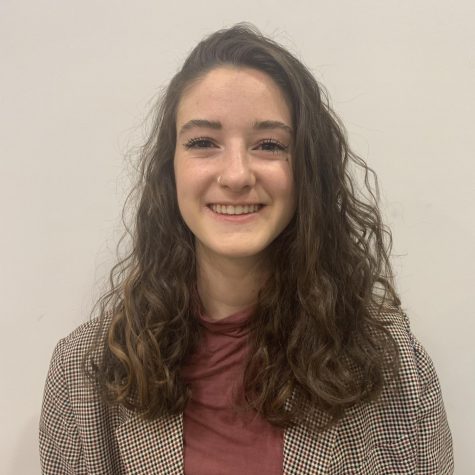
Editor in Chief for Volume 103
Culture Editor for Volume 101, Volume 102.
Rachel Gow is a junior at Fordham College at Rose Hill, majoring in Journalism...





































































































































































































